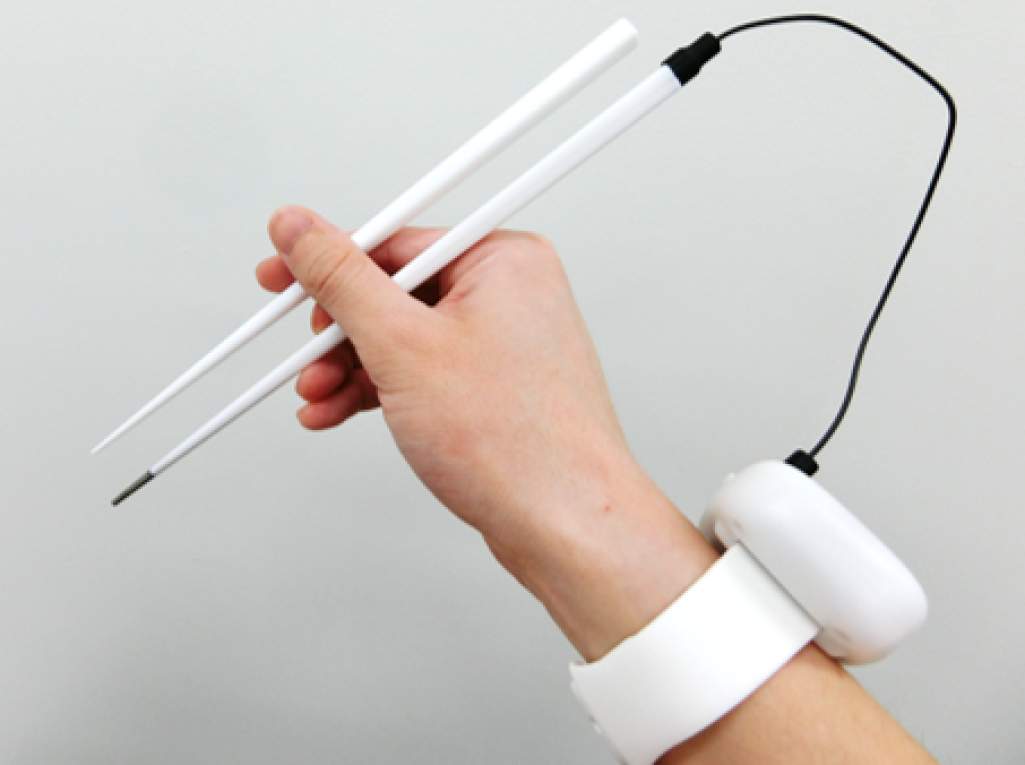Japan invents ‘electric chopsticks’ to boost saltiness with electric

Kirin, a major Japanese beverage giant, and a research team led by Prof Homei Miyashita of Meiji University worked together to invent ‘Electric Chopsticks’. A device that artificially enhances our senses for saltiness by up to 1.5 times.
This makes the low-sodium food tastier, which is attracting much interest as a major step towards solving health issues.
The daily salt intake of Japanese people, with 10.9 g (adult men) and 9.3 g (adult women), is very high compared to the salt intake standards set by World Health Organisation (WHO).
While Japanese food has a healthy image, many traditional condiments like soy sauce and miso, or processed foods such as ramen noodles, use a lot of salt. Excessive salt intake can easily lead to the onset and worsening of lifestyle-related diseases, including hypertension and chronic kidney disease. And this has been a concern for many years.
Efforts to reduce salt consumption have also affected the ingredient labelling of all foods found in supermarkets and convenience stores. In April 2020, the Japanese Government made it mandatory for processed foods to display the amount of ‘salt’ used as a measure to combat excessive salt intake. The label used to show as ‘Sodium Content’, but now it must be labelled ‘Salt Content’.
Sodium (mg) x 2.54 ÷ 1,000 = salt content (g)

As low-salt foods become more widespread, the number of deaths from stomach cancer among Japanese people decrease. On the other hand, many people still find low-salt foods bland and lacking in flavour, hindering the growth of low-salt diets.
Since 2019, Kirin and the Miyashita Laboratory have been researching electrical taste perception. They use very weak electricity–does not affect the human body–by adjusting the action of ions such as sodium chloride (basis of salty taste) and sodium glutamate (basis of umami taste) to pseudo-intensify or lighten food flavours, thereby changing how people perceive the taste.
They have now invented an electro-stimulation waveform that uses a weak electric current to enhance the taste of low-salt food by controlling its saltiness. In clinical trials conducted on actual people with low-salt diets, they discovered it enhances the saltiness of low-salt food by about 1.5 times.
The use of new technologies combining tastiness and healthiness is generating great expectations.
Related Article:
・Taste food via TV screen now with lickable tech
・Japan new gadget soon brings online taste to reality
We have a network of Japanese companies keen to expand into the Halal market in Malaysia & Indonesia.
If you are interested in connecting with sustainable technology companies in Japan, simply JOIN the network from below. We will match the right one for you!




